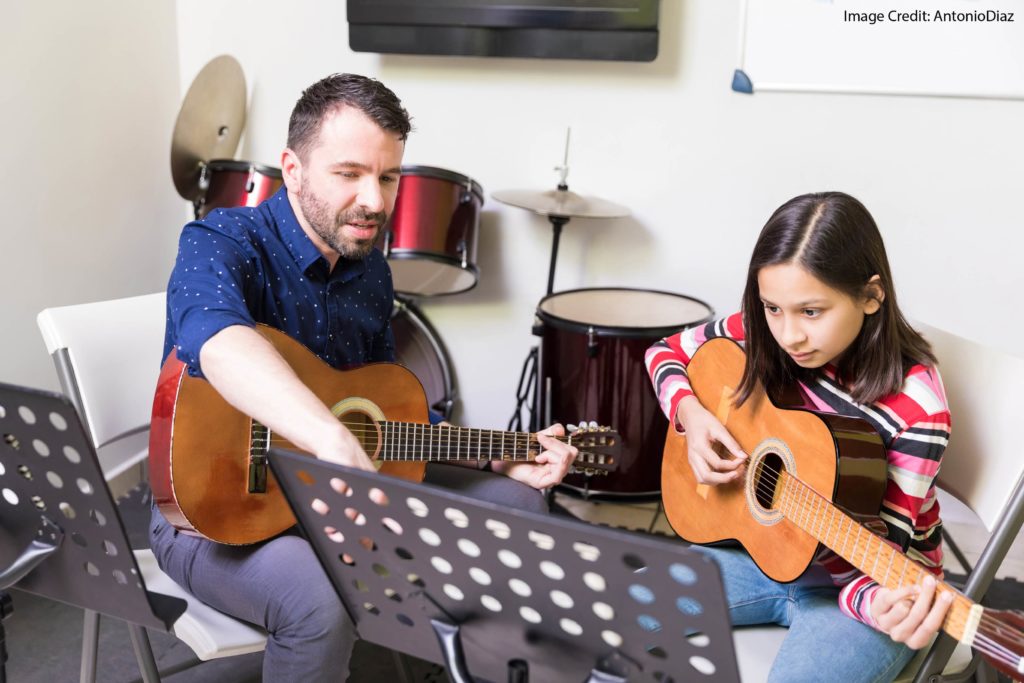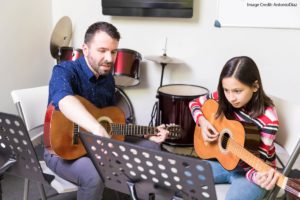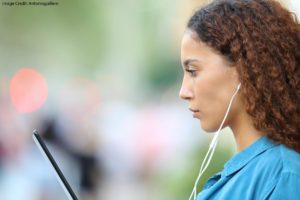Just last week, I spoke with middle- and upper-school students about learning.
We all know — and these students certainly know — that learning is hard. So, does cognitive science have any practical suggestions to help them study and learn?
Yes, reader, it does.
We know that retrieval practice helps learning much more than simple review.
We know that multitasking really isn’t a thing.
And, we know that exercise and sleep really help learning.
This last point — the importance of sleep — can be tricky.
After all, students say that they don’t have time to sleep — they have too much homework.*
Several students asked me: “I’m having trouble falling asleep. What do you suggest?”
In the moment, I suggested having a routine. Go to bed at the same time every night (as much as possible).
But, just a few days ago, a new study came across my desk…
Music and Sleep
I’ve often written about Dr. Michael Scullin’s research (for instance, here and here). He typically researches really practical questions. And, he studies and writes about them in unusually clear ways.
So, I’m a fan.
His most recent study looked at an unexpected topic: earworms.
You know: those infuriating tunes that get stuck in your head.
You just can’t get rid of them. (No, I’m not going to mention a song about very young scary fish that have huge teeth and eat seals and occasionally terroize people. “Doo doo doo doo doo doo.”)
What effect do earworms have on sleep?
Questions and Answers
Research into sleep can get quite technical. We start talking about “spindle detection” and “polysomnography” and “frontal slow oscillation activity.”
Rather than go into the details, I’ll offer a quick summary of the conclusions:
First: survey results suggest that most people (87%!) think that listening to music will improve sleep (or, at least, not harm it).
However — a big however — people who reported listening to relatively more music also report relatively lower sleep quality.
Second: the same survey results suggest that “earworms” make up a big part of this problem.
That is: the more music I listen to, the more earworms I experience. And, the more earworms I experience, the worse I sleep.
YIKES.
Third: you might think that music with lyrics results in more earworms than music without lyrics. Scullin’s team, in fact, thinks that’s the “intuitive view.”
Well, as so often happens, our intuitions are wrong.
Believe it or not, people who listen to instrumental versions of popular songs have more earworms — and worse sleep — than those who listen to the songs themelves.
So, What To Do?
What advice should we be giving students about sleep — other than, “get at least 8 hours”?
Scullin’s team sums up their study this way:
There are few behaviors as prevalent in young adults as listening to music, and many regularly listen to music as part of their bedtime routine. Listening to music feels relaxing, but familiar and repetitive music can trigger involuntary musical imagery that worsens sleep quality and daytime functioning.
In other words: to reduce earworms and sleep better, don’t listen to music before going to sleep. And, instrumental versions of popular songs seem to be especially likely to generate earworms.
I can’t believe I’m typing this, but: Listener beware!
* When students say to me, “I can’t sleep, I have too much homework,” I say, “Let’s think about this:
‘Homework’ is anything that helps you learn more.
Sleep helps you learn more.
Therefore, sleep is homework.
Do your sleep homework, and you will learn more.”
Scullin, M. K., Gao, C., & Fillmore, P. (2021). Bedtime music, involuntary musical imagery, and sleep. Psychological Science, 32(7), 985-997.









